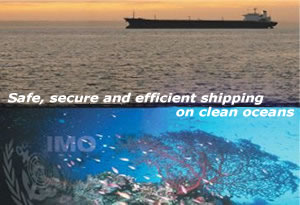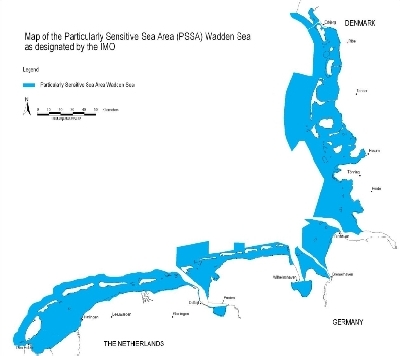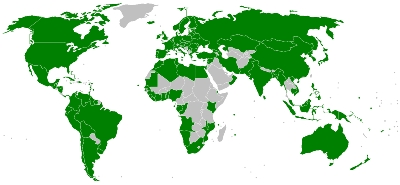Supplement 1.1a: MARPOL
The International Convention for the Prevention of Pollution from Ships
The MARPOL Convention is the main international convention covering prevention of pollution of the marine environment by ships from operational or accidental causes. It is a combination of two treaties adopted in 1973 and 1978 respectively and updated by amendments through the years.

The Convention includes regulations aimed at preventing and minimizing pollution from ships - both accidental pollution and that from routine operations - and currently includes six technical Annexes:
| Annex I: | Regulations for the Prevention of Pollution by Oil |
| Annex II: | Regulations for the Control of Pollution by Noxious Liquid Substances in Bulk (i.e. chemicals transported by chemical tankers) |
| Annex III: | Regulations for the Prevention of Pollution by Harmful Substances carried by Sea in Packaged Forms, or in Freight Containers, Portable Tanks or Road and Rail Tank Wagons |
| Annex IV: | Prevention of Pollution by Sewage from Ships |
| Annex V: | Prevention of Pollution by Garbage from Ships |
| Annex VI: | Prevention of Air Pollution from Ships |
Annexes I, II, IV, and V contain regulations on, e.g, the requirements applying to the discharge of oily residues, chemicals, sewage and garbage into the sea.
According to Annex I, an Oil Record Book has to be kept to record operations involving the disposal of oily residues (from the ship's machinery space and cargo tanks).
Annex II requires the keeping of a Cargo Record Book for chemical cargoes.
Annex V requires the maintenance of a Garbage Record Book.
States Parties must accept Annexes I and II, but the other Annexes are voluntary.
The discharge of oil sludge that accumulates in the engine room when heavy oil is used is illegal. Bilge water containing oil and residuals from oil tanker cargo may only be discharged under strict regulations and in small amounts or after strong attenuation. As a general rule oil containing residuals have to be turned in. Harbours provide special collecting tanks for this purpose.
Residuals from the cargo of chemical tankers have to be treated likewise. Depending on the toxicity of the substance and its danger for the environment, a discharge at sea is only possible under strict regulations and only in small amounts.
"Special areas" under MARPOL
In Annexes I, II and V MARPOL defines certain sea areas as special areas in which, for technical reasons relating to their oceanographical and ecological condition and to their sea traffic, the adoption of special mandatory methods for the prevention of sea pollution is required. Under the Convention, these special areas are provided with a higher level of protection than other areas of the sea.
"Particularly Sensitive Sea Areas" under MARPOL
A Particularly Sensitive Sea Area (PSSA) is an area that needs special protection through action by IMO because of its significance for recognized ecological or socio-economic or scientific reasons and which may be vulnerable to damage by international maritime activities.

Source: Wadden Sea Secretariat
The criteria for the identification of particularly sensitive sea areas include ecological criteria, such as unique or rare ecosystem, diversity of the ecosystem or vulnerability to degradation by natural events or human activities; social, cultural and economic criteria, such as significance of the area for recreation or tourism; and scientific and educational criteria, such as biological research or historical value.

